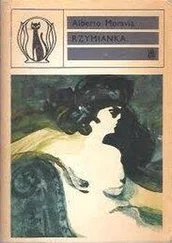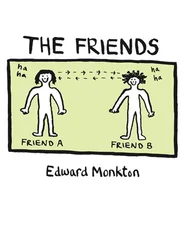The word “intellectual” had an unpleasant ring to it, but in some strange way Sergio knew it to be tinged with truth. He heard himself say, almost resentfully: “Who are you calling an intellectual?”
“Why, you of course,” Maurizio said, smiling.
“Me?” Sergio repeated, as if the word sounded strange applied to him. “So you consider me an intellectual?”
“Of course,” Maurizio said, smiling, “otherwise, what are you?” He laughed, adding, “See you later, Sergio … Got to run … Good luck.” He turned on the ignition and drove off.
Sergio ruminated on Maurizio’s words for a long time. On the one hand, he realized that the word “intellectual”—like the word “bourgeois” and many
167
others — had been degraded over time to the point that it now had a decidedly negative connotation. On the other hand, he could not help but recognize that despite Maurizio’s coarseness and ignorance, he had done something that Sergio, with all his education and subtlety, had never been capable of: he had defined him in a single word. Wasn’t he in fact an intellectual? And how had he managed not to realize this before? After that meeting, he reflected often on his appearance and his state of mind, and each time was forced to recognize that Maurizio’s jocular, off-the-cuff epithet fit him perfectly. To begin with, he had the physical attributes of the intellectual: he wore glasses and was on the small side, and often wore a serious expression on his unshaven face; his clothes were frayed and worn, his pockets full of slips of paper, his shoes covered in mud. Not to speak of his personality and his attitude: he was educated, intelligent, and versatile enough to quickly scribble an article on almost any subject, or write film reviews — as he did, for a second-rate newspaper — but not dedicated enough to be a professional writer, dependable and serious. As he saw it, the word “intellectual” was a kind of cliché, and in fact Maurizio was someone who often expressed himself in clichés. And yet, it was true that Sergio’s appearance and personality fit the cliché; here was the proof that clichés are often based on realities and behaviors that are actually quite common. In the end, he realized that he was an intellectual precisely because it displeased him that he should be seen as one by others. But no matter how he tried, he could not free himself of this displeasure, or accept Maurizio’s epithet with indifference or, better yet, with pride. He did not know why it displeased him so much; in part it was of course because he saw being an intellectual as something completely negative. But more important, it displeased him because it was Maurizio who had defined him in this way and, by so doing, had placed Sergio in a clear category, defined him as a type, with no possibility of change or surprise. Worse yet, it proved that Maurizio had a negative, unfavorable opinion of him.
It was just before the start of the war, sometime
168
around 1938, and, like everyone around him, Sergio was suffering from the suffocating weight of the tempest, heavy with war and destruction, which was gathering over Europe’s skies. In his case, the suffering was redoubled by his feelings of impotence and lack of confidence. Though he was opposed to all dictatorial regimes, he feared that his opposition was not strong enough, or decisive enough, or based on reasons that were sufficiently well founded or convincing. He envied the Fascists, for whom the choice was so clear, and he also envied Maurizio, to whom these events were clearly and uncomplicatedly indifferent. One day when they bumped into each other in the street, Maurizio had said: “Why get upset … what can we do about it? And if we can’t do anything, why get upset?” Sergio envied the few resolute anti-Fascists he knew, Communists and the like, because their attitude was as clear as that of the Fascists. But he was not able to distill his doubts and disgust into an unambiguous attitude, a plan of action. Even though he hated Fascism, he felt that it had wormed its way into his blood, not in the form of political allegiance, but rather as a kind of torpor and mortal passivity, like a poison that slowly intoxicates and weakens the body. He was confronted once again with his feeling of impotence, but this time it not only affected his personal life but encompassed the destiny of the nation and humanity as a whole. This thought paralyzed him and infused him with a kind of deadly inertia. Later he would remember this period as a nightmare he had experienced with his eyes open, like a dream where all is a blur and nothing happens and yet one is overcome by a sense of unjustified and terrifying oppression from which one does not have the will or strength to free oneself. In addition, for some reason during that period he was not commissioned to write any of the articles that normally kept him afloat; and to make matters worse, most of his few friends had left the city, either because they had been drafted or for other reasons.
169
Sergio found himself alone and out of work and began to lead a solitary, monotonous existence, filled with uneasiness and anxiety. He lived at home with his father — an office worker of middling importance — and mother, and his two older sisters, unmarried and by now decidedly spinsterish. He spent most of the day in his small bedroom, reading and daydreaming, and went outside only to buy cheap cigarettes from the tobacconist across the street. Or else he wandered the streets, not daring to sit down at a café because he had no money. His daily cigarette runs and solitary meanderings filled him with a dull, subdued, deadening, airless melancholy, almost as if he were not living but rather dreaming that he was alive, in a world where the talk was increasingly of war and violence, a world that was plunging, like a rock down a steep hill, toward the abyss, an abyss that could be seen and measured. He was simply waiting, for events that he could neither avoid nor change in any way, not even within the narrow arena of his personal feelings. Every morning he bought a newspaper and cigarettes; he went home, read the front page, and then threw the newspaper aside, picked up a book, and tried to read. It was summertime and his room, facing a courtyard, was suffocating and hot. Sergio lay on his bed, book in hand, half naked, and tried to concentrate. But he was only partly successful. He was easily distracted and would inevitably begin to inspect the few worn-out furnishings in his room, or gaze out the window at the little balconies hanging from the wall across the way, loaded with belongings. Even when he managed to read, it seemed to him, as when he took walks or did anything else, that he used only one part of his brain, almost mechanically, while the rest remained far away and preoccupied, though he could not quite say with what. He took a funereal, almost morbid pleasure in this solitary, silent, passive, wan existence, while at the same time reproaching himself for it, seeing it as further proof of his impotence and lack of self-confidence. At home, his parents — however timidly and discreetly — pushed him to work, implying that they could not continue
170
to pay his way if he remained idle. He responded evasively that there was no point in looking for work under the circumstances, with war about to break out. But he knew that this response was inspired by the deep indolence he felt rather than by a sense of reality. There was work to be had, and it probably would not have been so difficult to secure a job. The truth was that he did not even have the strength to look.
[III]
He often bumped into Maurizio around town, and each time, he was struck by his friend’s lighthearted mood. It seemed to him that Maurizio was interested only in the pursuit of his own pleasures. He was usually in his car with one girl or another; the girls were constantly changing, and because of their slightly embarrassed, submissive attitude, Sergio knew that they were involved in a love affair with Maurizio. Maurizio often asked Sergio what he was up to but never seemed particularly interested in Sergio’s response, which, it must be said, was always the same: “Writing, reading, and waiting.” He seemed to consider Sergio a kind of sad sack, an idler, in other words an intellectual, and Sergio no longer cared to prove him wrong. He knew he was an intellectual of the worst sort, a man whose intelligence was neither creative nor useful and served only to poison and paralyze him like a subtle venom. Furthermore, even though Maurizio realized that war was about to break out, he did not seem to attribute any importance to this imminent threat. “None of this has anything to do with me,” he commented to Sergio one day. “Do you know what history is? An excuse to do nothing and to let oneself go, maybe even to stop brushing one’s teeth in the morning. After all, what’s the point of brushing one’s teeth?” Sergio was struck by this summary, which so perfectly encapsulated his own situation. With the excuse that war was about to break out, he no longer bothered to brush his teeth, or, in other words, to fight the effects of time. Like the destructive waters of a flood, time flowed over him, leaving him inert, like the corpse of a drowned man.
Читать дальше












